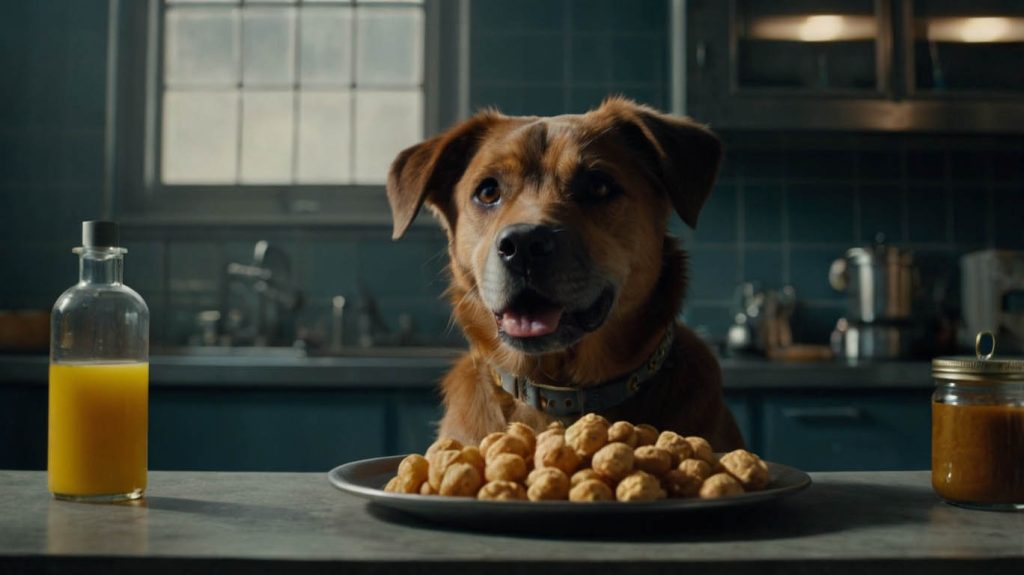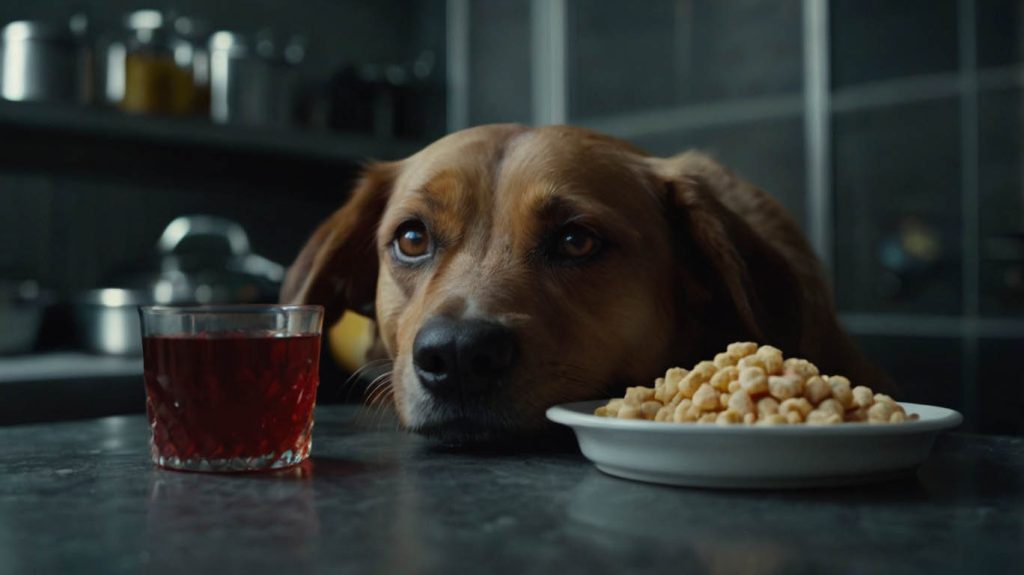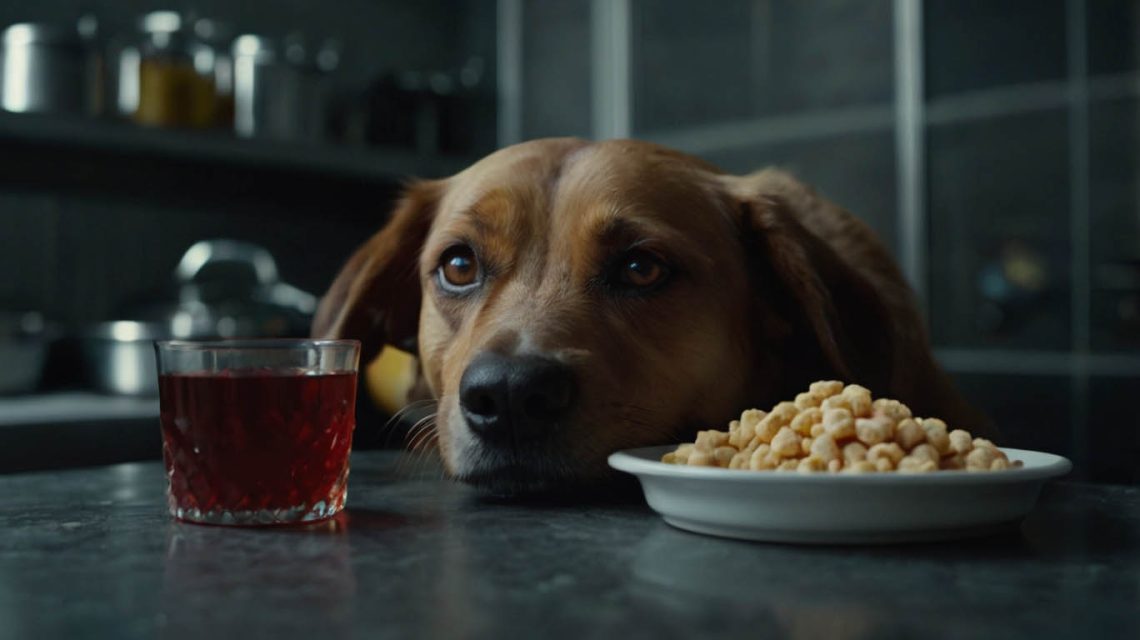What Human Foods Are Toxic to Dogs: The Ultimate Guide for Pet Owners
It was a perfect Saturday afternoon barbecue. David was at the grill while his mischievous Golden Retriever, Leo, mingled with the guests. A little while later, David noticed his niece had dropped her brownie on the grass, and Leo was now happily licking his chops. A cold spike of fear shot through David. He knew chocolate was bad, but how bad? What else on the table could be dangerous? He found himself in a panic, asking the question every responsible pet owner needs to know: what human foods are toxic to dogs?
David’s moment of terror is a scenario that plays out in homes everywhere. Those big, pleading puppy eyes can make it incredibly tempting to share our snacks. However, what is a harmless treat for us can be a life-threatening poison for our beloved canine companions.
Consequently, this definitive guide is designed to be your essential safety manual. We will provide a clear, vet-reviewed list of the most common and dangerous human foods, explain why they are toxic, and detail the warning signs of poisoning. Therefore, you can protect your pet with confidence and knowledge.
The Critical “Why”: Understanding the Danger
Before we dive into the list, it’s crucial to understand that a dog’s metabolism is fundamentally different from a human’s. Their bodies cannot process certain substances, which can lead to everything from mild stomach upset to severe organ failure and death. Knowing what human foods are toxic to dogs is not about being overly cautious; it’s about being a responsible guardian for your pet.

The Top 10 List: What Human Foods Are Toxic to Dogs?
This is the list every dog owner should memorize, print out, and keep on their refrigerator.
1. Chocolate: The Well-Known Toxin
This is the most famous toxic food for a reason. Chocolate contains theobromine and caffeine, both of which are stimulants that dogs cannot metabolize effectively.
- Why it’s toxic: These compounds overstimulate a dog’s nervous system and heart. The darker and more bitter the chocolate (like baker’s chocolate or cocoa powder), the more toxic it is.
- Symptoms: Vomiting, diarrhea, restlessness, increased heart rate, tremors, seizures, and in severe cases, death.
2. Xylitol: The Hidden, Deadly Sweetener
Xylitol is perhaps the most dangerous item on this list because it’s hidden in so many products. It is a sugar substitute found in sugar-free gum, candy, baked goods, some peanut butters, and even some medications.
- Why it’s toxic: For dogs, xylitol triggers a massive, rapid release of insulin, causing a life-threatening drop in blood sugar (hypoglycemia). It can also cause acute liver failure. Even a very small amount can be fatal.
- Symptoms: Vomiting, weakness, stumbling, collapse, and seizures.
3. Onions, Garlic, Chives, and Leeks: The Allium Family
This entire family of plants is toxic to dogs in all forms—raw, cooked, powdered, or dehydrated.
- Why they’re toxic: They contain compounds that cause oxidative damage to a dog’s red blood cells, leading to a condition called hemolytic anemia.
- Symptoms: Weakness, lethargy, pale gums, vomiting, and reddish or brown urine. Symptoms may not appear for several days after ingestion.
4. Grapes and Raisins: The Mysterious Kidney Toxin
The exact toxic substance in grapes and raisins is still unknown, but their effect is well-documented and severe.
- Why they’re toxic: Ingesting even a small number of grapes or raisins can cause sudden, acute kidney failure in dogs.
- Symptoms: Vomiting, diarrhea, lethargy, loss of appetite, and decreased urination.
5. Macadamia Nuts: The Neurological Toxin
While many nuts are not ideal for dogs due to their high fat content, macadamia nuts are uniquely toxic.
- Why they’re toxic: The specific toxin is unknown, but it affects a dog’s nervous system and muscles.
- Symptoms: Weakness (especially in the hind legs), stumbling, tremors, vomiting, and fever.
6. Alcohol: A Potent Poison
Alcohol affects dogs in much the same way it affects humans, but their smaller size means it takes a much smaller amount to cause serious problems.
- Why it’s toxic: It depresses the central nervous system and can cause a dangerous drop in blood pressure, body temperature, and blood sugar.
- Symptoms: Stumbling, vomiting, disorientation, difficulty breathing, and coma.
7. Cooked Bones: The Dangerous “Treat”
While it seems natural to give a dog a bone, cooked bones are extremely dangerous.
- Why they’re dangerous: The cooking process makes them brittle. They can easily splinter, causing choking, internal punctures of the digestive tract, or blockages. Raw bones can also pose risks and should only be given with caution and supervision.
8. Avocado: A Risk for Some
The primary concern with avocados is a substance called persin, which is found in the pit, skin, and leaves of the plant.
- Why it’s a risk: Persin can cause vomiting and diarrhea in dogs. The large pit also poses a significant choking and obstruction hazard.
9. Yeast Dough: A Painful Problem
Uncooked bread dough containing yeast is a serious threat.
- Why it’s dangerous: The warm, moist environment of a dog’s stomach causes the dough to expand, which can lead to a painful, bloated stomach and a life-threatening condition called Gastric Dilatation-Volvulus (GDV). Additionally, as the yeast ferments, it produces alcohol, leading to alcohol poisoning.
10. Caffeine: A Powerful Stimulant
Like chocolate, caffeine is a potent stimulant that is dangerous for dogs. Keep them away from coffee, tea, soda, and energy drinks.
- Why it’s toxic: It causes the same symptoms as theobromine in chocolate, including restlessness, rapid breathing, heart palpitations, and tremors.

What Human Foods Are Toxic to Dogs? A Quick-Reference Chart
| Food | Primary Risk |
|---|---|
| Chocolate | Heart & Nervous System Toxicity |
| Xylitol | Hypoglycemia & Liver Failure |
| Onions & Garlic | Red Blood Cell Damage (Anemia) |
| Grapes & Raisins | Acute Kidney Failure |
| Macadamia Nuts | Neurological & Muscle Issues |
| Alcohol | Central Nervous System Depression |
| Cooked Bones | Choking & Internal Punctures |
| Avocado | Vomiting & Diarrhea (Persin Toxicity) |
| Yeast Dough | Stomach Bloat & Alcohol Poisoning |
| Caffeine | Heart & Nervous System Toxicity |
What to Do If Your Dog Eats a Toxic Food
If you know or suspect your dog has ingested something from this list, time is of the essence.
- Stay Calm and Gather Information: Note what your dog ate, how much they ate, and when they ate it. Have your dog’s approximate weight handy.
- Call for Help Immediately: Contact your veterinarian or an animal poison control center right away. The two main hotlines are:
- Pet Poison Helpline: (855) 764-7661
- ASPCA Animal Poison Control Center: (888) 426-4435 (Note: A consultation fee may apply, but it is well worth it for their expert, life-saving advice).
- Do NOT Induce Vomiting Unless Instructed: Some toxins can cause more damage coming back up. Only induce vomiting if a veterinary professional specifically tells you to.
A Case Study Resolved: How David Helped Leo
Let’s return to David and his dog, Leo. In his panic, David did the right thing. He immediately called the ASPCA Animal Poison Control Center. He told them Leo’s weight and that he had eaten a small brownie made with milk chocolate. The expert on the line was able to reassure him. Given Leo’s large size and the small amount and type of chocolate, a serious reaction was unlikely. They advised him to monitor Leo closely for any signs of vomiting or hyperactivity.
Leo was perfectly fine, but the scare was a powerful lesson. David now understands what human foods are toxic to dogs and is much more careful at gatherings. He even made a “safe treat” station for Leo with dog-friendly snacks so guests wouldn’t be tempted to share.
The Final Verdict: Knowledge is Your Pet’s Best Protection
Sharing our lives with dogs means sharing our homes and, sometimes, our food. But being a responsible pet parent means knowing where to draw the line. By educating yourself on what human foods are toxic to dogs, you can prevent a tragic accident and ensure your home is a safe haven for your furry best friend.
Your dog’s safety is in your hands. We urge you to share this guide with friends and family to spread awareness. When in doubt, always consult your veterinarian before offering any human food to your pet.


